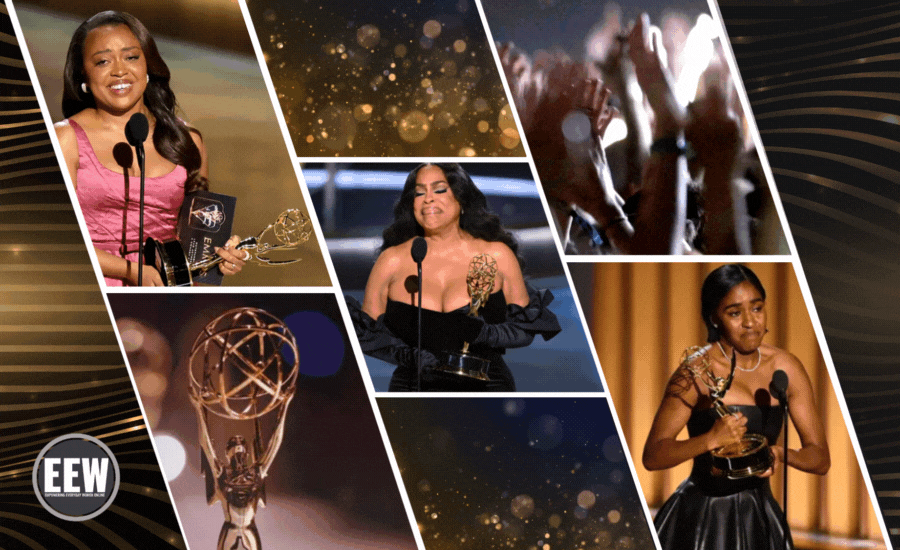Rustin Unveiled: The Intersection of Civil Rights and Acceptance in a Modern Retrospective
By EEW Entertainment Editors // CineBuzz// Movies
Rating: 4.8 Stars
Stream It: Netflix
Colman Domingo as Baynard Rustin (Credit: David Lee/Netflix)
Summary: Bayard Rustin's formidable journey as an openly gay Black Civil Rights leader and his tireless pursuit for racial equality is at last celebrated on the silver screen. Colman Domingo delivers a commanding portrayal of the man who was the mastermind of the 1963 March on Washington, in a film helmed by the DGA Award and three-time Tony Award-winning director, George C. Wolfe (Ma Rainey’s Black Bottom). This film marks a milestone for Domingo, showcasing his talents in his first leading role in a feature film."
In an era where the collective voice for equality crescendos, yet the echo of intolerance still reverberates, "Rustin" emerges as a poignant reminder of the often overlooked narratives within the civil rights movement.
As the film unravels the complicated tapestry of Bayard Rustin's life, it challenges us to confront the uncomfortable truth: that the fight for civil rights has, at times, been marred by homophobia, even within its ranks. Through the lens of Rustin's story, we are compelled to acknowledge the dual battles waged by LGBTQ+ individuals of color – a struggle for racial justice intertwined with a quest for sexual identity acceptance.
The film "Rustin" is an homage and a bold act of historical reclamation, centering Rustin in the annals of history where his contributions have been intermittently obscured, not least due to the societal and legal challenges he faced as an openly gay man. His story is one of intricate complexity, populated by influential figures and high stakes, encapsulated mainly through the march—captivatingly depicted from its hasty inception to its awe-inspiring culmination on August 28, 1963, as a quarter-million individuals gathered at the Lincoln Memorial, marking the zenith of Rustin's public achievements.
Bayard Rustin and Dr. Martin Luther King, Jr. (Credit: Monroe Frederick, courtesy of the Estate of Bayard Rustin)
The director, George C. Wolfe, along with screenwriters Julian Breece and Dustin Lance Black, set the historical context with imagery of resolute protesters amidst hostile bigotry, swiftly transitioning to the strategic core of the civil rights movement.
It's 1960, and we find Dr. King (portrayed by Aml Ameen) overwhelmed. When approached to lead a protest at the Democratic National Convention, King's initial reluctance is challenged by the towering presence of Rustin, whose strategic acumen and impassioned plea—emphasizing the necessity for the Democrats to oppose segregation—sway King to take the helm. This decision incites the ire of influential figures like Roy Wilkins of the N.A.A.C.P. (portrayed by Chris Rock) and U.S. Representative Adam Clayton Powell Jr. (a formidable Jeffrey Wright).
CCH Pounder as Dr. Anna Hedgeman (Credit: David Lee/Netflix)
Within the first five minutes, "Rustin" captivates its audience, laying the groundwork for a story that resonates beyond the screen. Domingo, along with Wright and the ensemble, drive the narrative with vigor, although the film occasionally grapples with the magnitude of its historical subject.
For the readers of EEW Magazine Online, this portrayal of Rustin's life is particularly poignant. It underscores the complex intersections of civil rights and sexual orientation, a topic of enduring relevance.
Audra McDonald as Ella Baker (Credit: David Lee/Netflix)
In "Rustin," we are presented with a film that doesn't shy away from the intricate layers of a civil rights titan's life, but rather embraces them, casting a new light on the shadows of our history. As Black Christian women, our journey through this narrative is a profound one, for it speaks to the core of our values—love, compassion, and justice. We are invited to witness the unvarnished truth of a man who, while instrumental in shaping the course of American history, was also forced to navigate the tumultuous waters of prejudice that extended beyond skin color.
Aml Ameen as Martin Luther King, Jr. (Credit: David Lee/Netflix)
The film serves as a mirror, reflecting the strides we've taken towards inclusivity and the miles we've yet to travel. It nudges us towards introspection and understanding, asking us to consider the full breadth of our advocacy for justice. In the portrayal of Bayard Rustin, we find a clarion call to expand our embrace, ensuring that our fight for civil rights encompasses all dimensions of human identity.
Chris Rock as Roy Wilkins (Credit: David Lee/Netflix)
As the final credits roll on "Rustin," viewers are left with a lingering sense of what it means to be at the intersection of civil rights and personal truth. The film does not merely recount history; it invites us into a conversation, one that is as relevant today as it was during the heat of the movement. For Black Christian women, "Rustin" is more than a biopic; it's a catalyst for reflection on how we honor every image of God's creation in our continued quest for a just society.
In Rustin's story, we find not only the echoes of our past but also the whispers of hope for a future where love and righteousness walk hand in hand.












